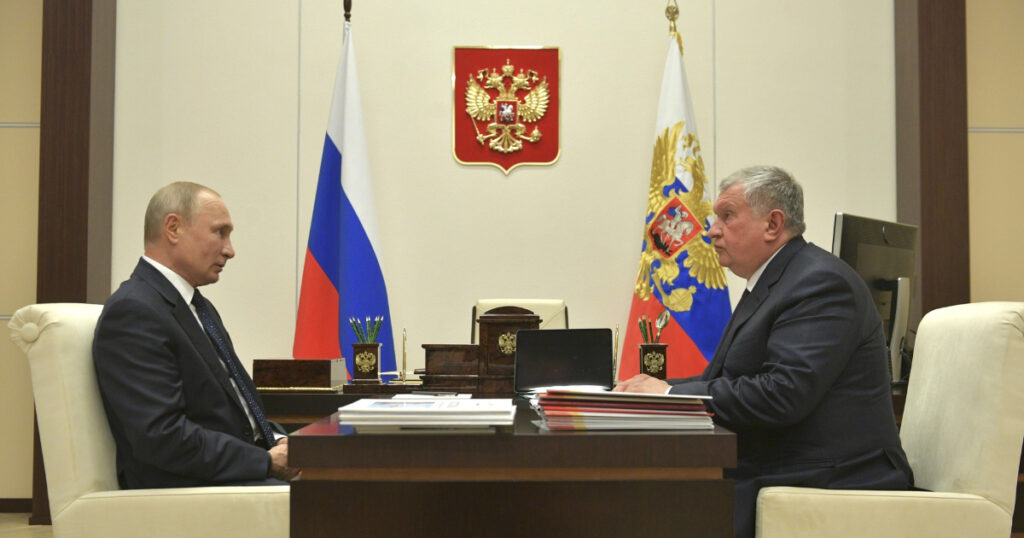
5 more years of Igor Sechin
The influential head of oil giant Rosneft, Igor Sechin, generally tries to avoid the limelight, but this week he was barely out of the headlines. First, Sechin asked President Vladimir Putin for oil subsidies somehow — deliberately or accidentally — getting his figures muddled. Next, he took part in a meeting about a genetics project linked to Putin’s daughter and suggested making Rosneft’s funding tax-free status. Then, it was revealed that the new owner of Rosneft’s former Venezuelan assets was a private security company. Finally — and most importantly – Sechin’s contract as Rosneft CEO was extended for another five years.
Subsidies for Rosneft
Sechin met (Rus) Putin in person Tuesday to ask for a state handout to help Rosneft while oil prices are low. This was a gutsy move — Sechin was reportedly behind Russia’s decision to tear up an agreement with OPEC in March that sent oil prices plunging.
- In addition to tax breaks, Sechin asked for cheaper pipeline transportation. Sechin complained that, while the price of oil has risen from 1,100 rubles to 1,200 rubles since 2008, the tariff imposed by oil pipeline monopolist Transneft has jumped from 822 rubles to 2,100 rubles per ton per 100km. Sechin said transport costs now make up 32 percent of the oil price. Putin promised to look at the proposals.
- The problem was that Sechin quoted the transport price in tons instead of barrels (there are roughly seven barrels in a ton). Igor Dyomin, an advisor to the head of Transneft could not resist pointing this out (Rus). Transneft has been battling Rosneft for years (their last major conflict (Rus) was about contaminated oil). Dyomin argued Rosneft’s transport costs are 16.8 percent of the oil price on the domestic market; while for exports it averages 13.4 percent.

Genetics with Sechin
Two days after his in-person meeting with Putin, Sechin was at another meeting (Rus) with the Russian leader, this time via video conference. The topic was genetics: Russia is currently implementing a $1.7 billion genetics program and Putin’s reported daughter, Maria Vorontsova, is on the oversight council. In March 2020, Rosneft became an official partner of the program (we wrote about it here). Sechin asked for subsidies at this meeting too: he suggested Rosneft’s investment in the project be exempted from tax.
From Venezuela to Ryazan
Rosneft’s sale of its Venezuelan oil assets to the Russian state in March was one of the biggest Russian oil deals in recent years — even if it was hardly noticed because of the coronavirus. At the time, the buyer was not disclosed, but this week it emerged that the assets are now controlled by a private security company, formerly owned by Rosneft, which is based in the city of Ryazan to the southeast of Moscow. The security company is owned by state-owned Roszarubezhneft, which was set-up on the same day as Rosneft’s exit from Venezuela. It appears Sechin still has effective control of the South American assets.
Why the world should care The fact that Putin met with Sechin in person speaks volumes. And there are many other indications that Sechin remains in the president’s good graces: the day after his meeting with Putin, his contract was extended for five years (he has been head of Rosneft since 2012). From genetics to Venezuela, Sechin’s influence looks set to grow and grow.



